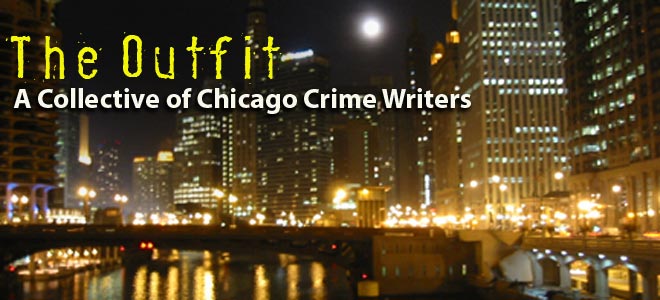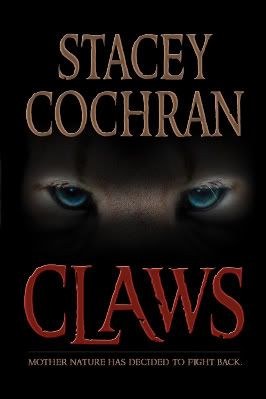Please allow me to introduce myself
I’m a man of (moderate) wealth and (questionable) taste
I’ve been around for a long, long year
Fought for the State of Illinois’s soul and faith
I was around when Blagojevich
Had his moment of doubt and pain
Made damn sure the Senators
Washed their hands and sealed his fate
Pleased to meet you
Hope you read my books
But what’s puzzling you
Is the nature of their hooks.
Okay, wore that joke a little thin in the last verse. Some of you might be too young to even catch the Stones reference. My name is David Ellis. My friends call me Dave. I’m a Chicago novelist who, for the past couple of years, has not lived in Chicago and hasn’t done much novel writing. How’s that for an intro? My day job as a lawyer has taken a rather central role since I came down to Springfield and became the legal counsel for House Speaker Michael J. Madigan. This coincided with the moment in time that our former Governor, Mr. Blagojevich, accelerated his narcissistic and corrupt ways that ultimately led to his arrest last December on federal corruption charges…
… which led to me serving as the House Prosecutor who tried and convicted the Governor before the Illinois Senate. To say the least, it was an historic and unforgettable experience. I tell you this, not because I wish to brag, but because—well, actually, it was mostly to brag. It also explains why I’ve fallen behind in writing novels.
I have five books under my belt so far. The first few are generally described as legal thrillers. In stark contrast, the last couple have been thrillers about lawyers. Yes, I know—the versatility. By the way, I also consider them mysteries because they feature unsolved murders, which is cool for me because I always get selected for that ubiquitous book convention panel titled, “What’s the difference between a thriller and a mystery?” I always thought with the best books, you couldn’t tell the difference.
I absolutely love being a novelist and never take it for granted. I look forward to having this chance to talk books, crime, politics (though I will probably have to watch myself), and most of all, writing. I like to take chances and try new things and write about stuff I’ve never covered before, which is sometimes maddening to my publisher, but essential for me.
I wrote my fourth book,
In the Company of Liars, backwards—in reverse chronological order—almost on a dare to myself. I wanted to challenge myself and you, the reader. I got an interesting reaction from most people, including my agent at the time: People didn’t think mystery readers would want to undertake the project of a reading a novel that goes backwards in time, from the end to the beginning.
And to their surprise, not mine, they were wrong. It certainly wasn’t for everyone, and I did get some negative mail for the first time, but the overall reaction was very positive. (Maybe it was the corny marketing that did it: “The end is just the beginning!”)
Point being, I still believe that in this world of entertainment that gives us 3 CSI’s and 3 Law and Orders, and where most of the bestselling novelists feature series characters, your everyday reader still likes a challenge.
Look, I’m not very plugged in, as they say, in the book community. I haven’t been able to hit many bookstores or attend conventions lately; I would struggle to name five literary agents (and two of them are mine); when my fellow authors were pondering the effects of Kindle on the publishing world, I was pondering, “What the hell is Kindle?” So I may not be too helpful at giving marketing advice. (My fellow bloggers, Libby and Laura, would be happy to attest to this fact.)
But I can say this much: The old adage, write what you know? I say, write what you love. Whenever I find myself bored with what I am writing, I delete it and move on. If I can’t even be interested
writing it, how can I expect you to enjoy
reading it? Enthusiasm is infectious. It bleeds onto the page.
It seems to me, admittedly from a distance, that a lot of novelists are rather cautious. We think about the business and try to find the right niche to make a splash. Grisham and Turow got hot and everyone wrote legal thrillers. Dan Brown went crazy and everyone’s writing conspiracies. (I was waiting for CSI: Opus Dei.) Hey, that’s cool. I’m not being judgmental. We’re all trying to make it in an increasingly tough business.
But I say, if you’re passionate about what you write, it will shine through, and you’ll be at your best as a novelist. All spin and splash aside, I continue to believe that the best ticket to sustainable success is simply writing a great novel, no matter the genre or theme. It would be great if you could summarize your novel in a catchy 3-sentence elevator pitch, too, but don’t put the cart before the horse here.
Everyone get that? Write.A.Good.Book. That is my magical prescription for success. Next time, I’ll reveal that the key to being a bestseller is to sell a lot of books.
 But Matthew had a cure for all that, which he called Infinite Summer. His plan was to put together a small crew of four people including himself who would read Infinite Jest between June and September and comment each week as they went along. He would also solicit essays from people who love the novel, who hate the novel, people who knew David Foster Wallace, people who were experts on the book. And, of course, he would invite anyone who was game to read along with us.
But Matthew had a cure for all that, which he called Infinite Summer. His plan was to put together a small crew of four people including himself who would read Infinite Jest between June and September and comment each week as they went along. He would also solicit essays from people who love the novel, who hate the novel, people who knew David Foster Wallace, people who were experts on the book. And, of course, he would invite anyone who was game to read along with us. 
















